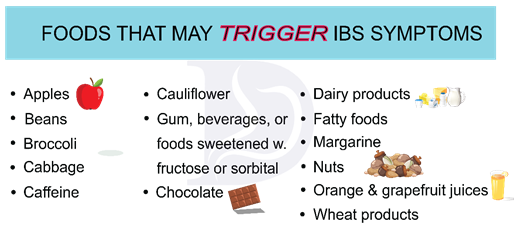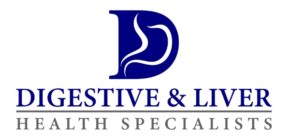Irritable bowel syndrome, commonly known as IBS, primarily affects the colon, where all the dietary fiber and other foods arrive from the stomach. There is evidence that certain foods and ingredients play a significant role in triggering IBS symptoms.1
Types of IBS
- Constipation dominant IBS
- Diarrhea dominant IBS
Diet Preferred During Abdominal Discomfort, Cramps, and Bloating
The colon contains many beneficial bacteria that help in the fermentation of soluble fiber present in food, producing gases as a result. With an IBS condition, excessive bloating and abdominal discomfort occur because of the excessive production of intestinal gases created by the bacteria. Only soluble fibers are fermented by these healthy bacteria and result in gas production. Hydrogen is produced, which eventually becomes flatus. Avoiding high-fiber soluble food with a high fermentation rate can reduce the symptoms of abdominal discomfort, bloating, and cramps.2 Soluble fiber foods include:
- Oats
- Beans
- Fruit pectin
- Berries
- Carrots

Preferred Diet for Constipation Dominant IBS
Constipation occurs when excessive water is absorbed and the stool becomes hard. The food that plays an important role in this type of IBS is insoluble fiber such as wheat, nuts, tomatoes, and wheat bran. These foods are not fermented by the bacteria; hence, they cannot produce colon gases. They also help in softening the stool by retaining water resulting in a large, bulky stool. One recommendation is to increase insoluble fiber to 10–15 grams daily, or even more if necessary.
Methane Constipation
Certain gases are produced in the intestine. Methane is one of them, along with hydrogen, carbon dioxide, hydrogen sulfide, and oxygen. Research suggests that it is the methane gas that promotes constipation. Constipation-dominant IBS patients are encouraged to eat prebiotic plant fiber to change the colon's acidity and prevent the formation of methane gas. Prebiotic supplements can be taken in doses of 1 g/day for one week, then 2 g/day, and so forth until the proper results are achieved.3
Causes of Diarrhea Dominant IBS
It is important for the physician to rule out various reasons for diarrhea, such as the use of sugar-free gum and candy containing sorbitol, which triggers diarrhea. Patients with lactose intolerance can have diarrhea after ingesting lactose. Various chronic parasitic infections can also lead to diarrhea. Eliminating the possibility of these triggers helps the physician determine the next steps in treating diarrhea.
Preferred Diet for Diarrhea Dominant IBS
Increasing insoluble fiber in the diet followed by prebiotic fiber is recommended to bulk up the stool.
Exclusion Diet for IBS
Foods that might trigger IBS should be avoided, such as4:
- Alcohol
- Coffee
- Milk and ice cream
- High fructose corn syrup
- Gradually reduce animal protein from the diet, especially red meat

Food Recommended for IBS Patients
There is no hard and fast rule to follow in this regard, but some general foods that you should consider including in your routine are:
- Fruits and vegetables
- Legumes such as peas
- Eggs and lean meat
- Low-fat diet (less than 27 g/day)
- A balanced mixture of soluble and insoluble fiber
- Prebiotic fiber
Diet recommendations for IBS patients are on a trial and error basis. One particular diet that might help one patient may not help others. A food that one person tolerates well may cause problems for someone else.
References
- Weaver KR, Melkus GDE, Henderson WA. Irritable Bowel Syndrome: A review. Am J Nurs. 2017;117(6):48. doi:10.1097/01.NAJ.0000520253.57459.01
- Werlang ME, Palmer WC, Lacy BE. Irritable Bowel Syndrome and Dietary Interventions. Gastroenterol Hepatol (N Y). 2019;15(1):16. Accessed July 1, 2022. /pmc/articles/PMC6423692/
- Algera J, Colomier E, Simrén M. The Dietary Management of Patients with Irritable Bowel Syndrome: A Narrative Review of the Existing and Emerging Evidence. Nutrients. 2019;11(9). doi:10.3390/NU11092162
- Cozma-Petrut A, Loghin F, Miere D, Dumitrascu DL. Diet in irritable bowel syndrome: What to recommend, not what to forbid to patients! World J Gastroenterol. 2017;23(21):3771. doi:10.3748/WJG.V23.I21.3771

